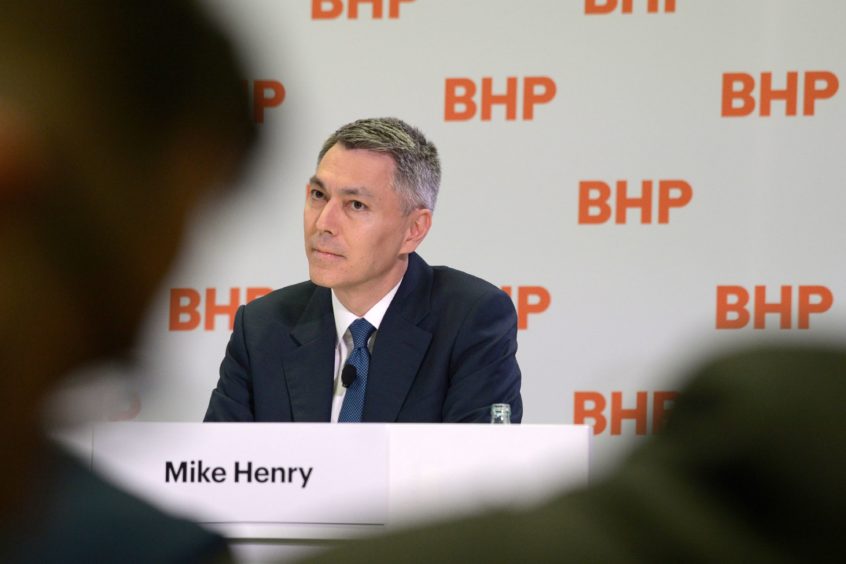
BHP Group on Tuesday said it sees a clear opportunity in oil and gas to enjoy strong returns over the medium term and is ready to seek counter-cyclical deals in a world where many energy companies have cut back on exploration and new projects.
The company expects crude oil prices to climb further, as higher prices will be needed to trigger investment in deep-water developments that will help balance the market over the next ten years. Although BHP boss Mike Henry remained more cautious on the longer-term outlook for oil and gas.
“In the long term the energy transition will impact oil and gas demand, but in the near term given that oil and gas are such an important part of the way our economy is structured and will remain so for some time, there is a firm demand for new oil and gas supply given the fall in exploration and development spending from last year due to the pandemic and the lack of exploration success in recent years means the fundamentals for oil and gas are strong in the near term,” Henry said, speaking after the UK-Australian resources company released its financial results for the first half of the 2020-21 fiscal year to 30 June.
Looking forward, BHP’s base case is that crude oil prices should build upon their recent recovery to around $60 per barrel. But the pace of gains is initially likely to be modest given potential headwinds from currently curtailed supply returning.
However, “if we look beyond this phase, our bottom-up analysis of demand, allied to systematic field decline rates, points to a long run structural demand-supply gap. Considerable investment in conventional oil is going to be required to fill that gap. The medium to long term supply deficit has been amplified by the global retreat from capital spending across the industry in response to the pandemic. Deepwater assets are the most likely major supply segment to balance the market in the longer term. The price expectation required to trigger investment in deep-water projects is expected to be significantly higher than the prices we face today,” predicted BHP.
Henry outlined a case for commodity demand to remain strong for the next decade, bolstered by the energy transition, and as long as 30 years.
“The energy transition will be much more commodities intensive and will require all the minerals we produce. It will be more copper intensive, more nickel intensive, it will also be more steel intensive for all the steel that is used in windmills and carbon capture and storage infrastructure, so that will be good for iron ore demand and metallurgical coal demand,” Henry said
The group reported its best first-half profit in seven years and declared a record interim dividend, on the back of strong demand for metals – particularly iron one – from China. The company declared an interim dividend of $1.01 per share, up from last year’s payout of $0.65 per share. Its underlying profit from continuing operations for the six months ended December 31 increased to $6.04 billion from $5.19 billion last year.
Underlying profits improved on increased iron ore and copper prices, offsetting a fall in revenue from its petroleum business due to low oil prices and falling output.
Recommended for you

